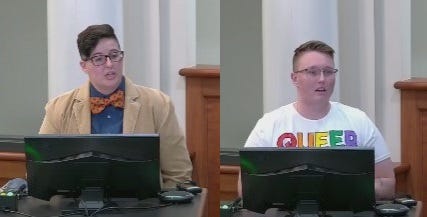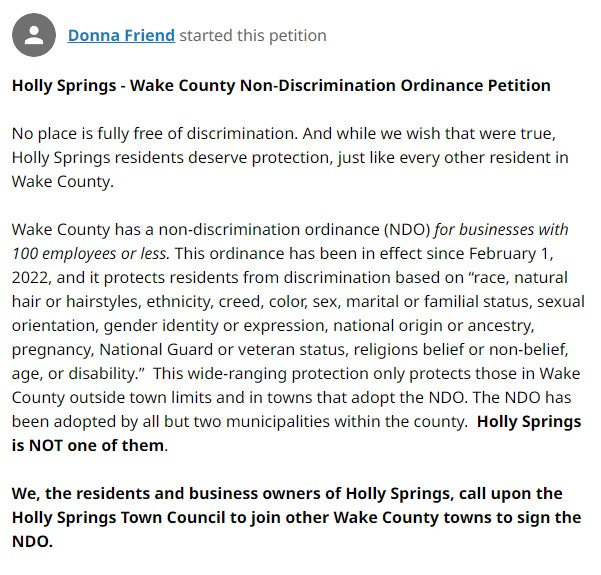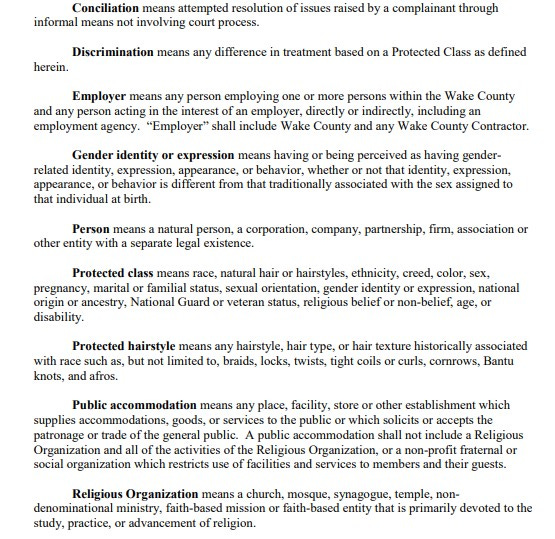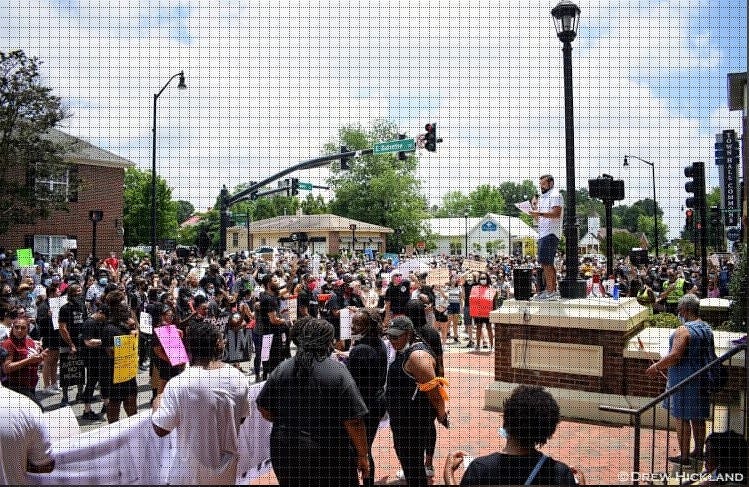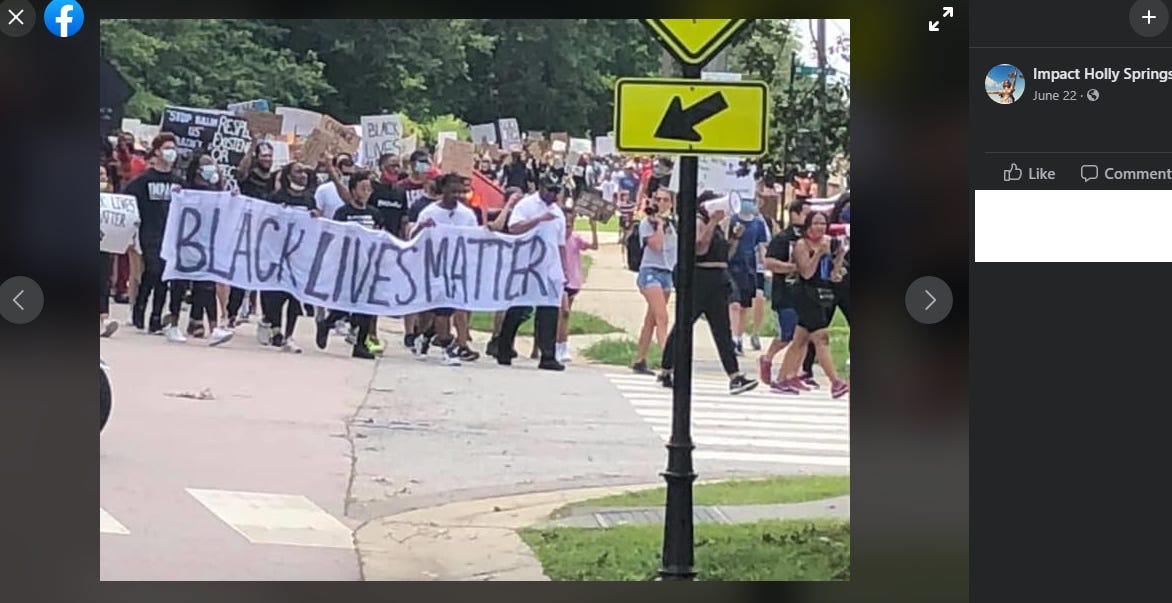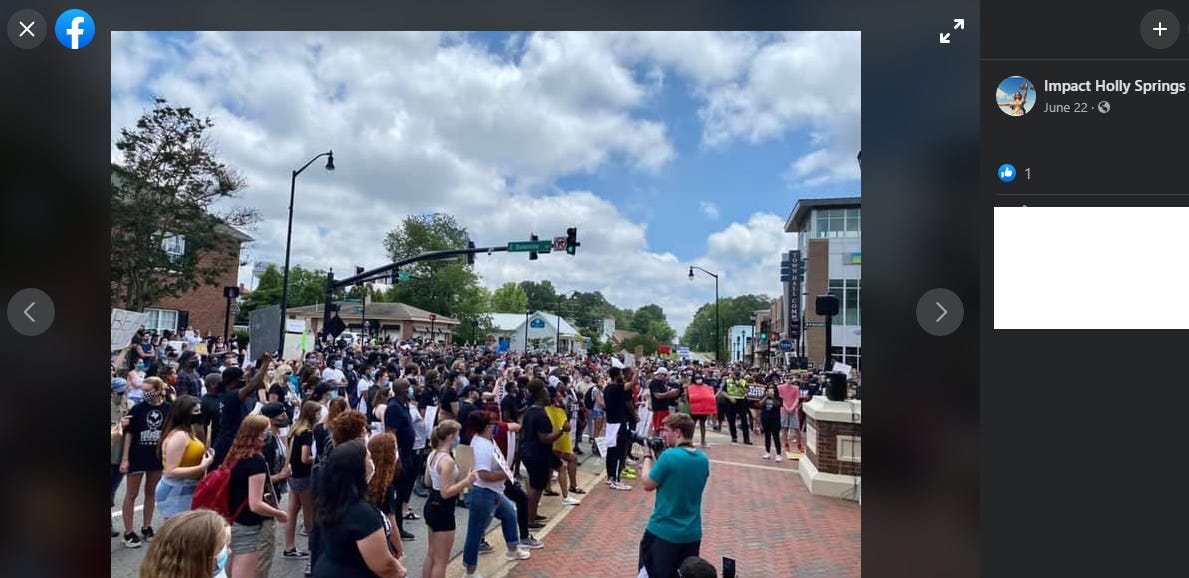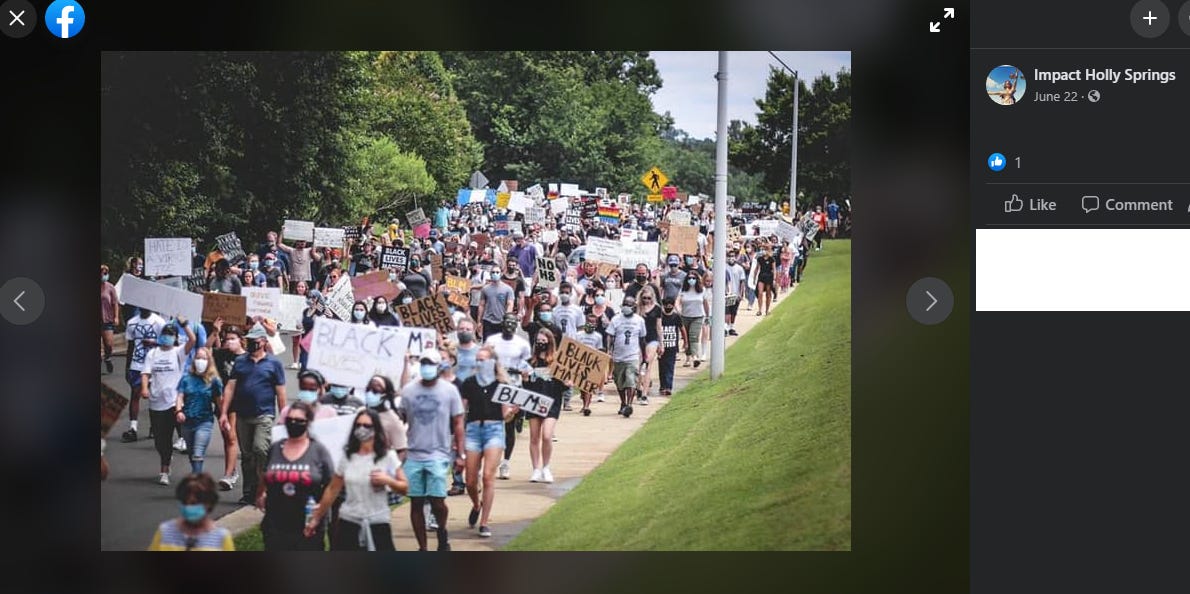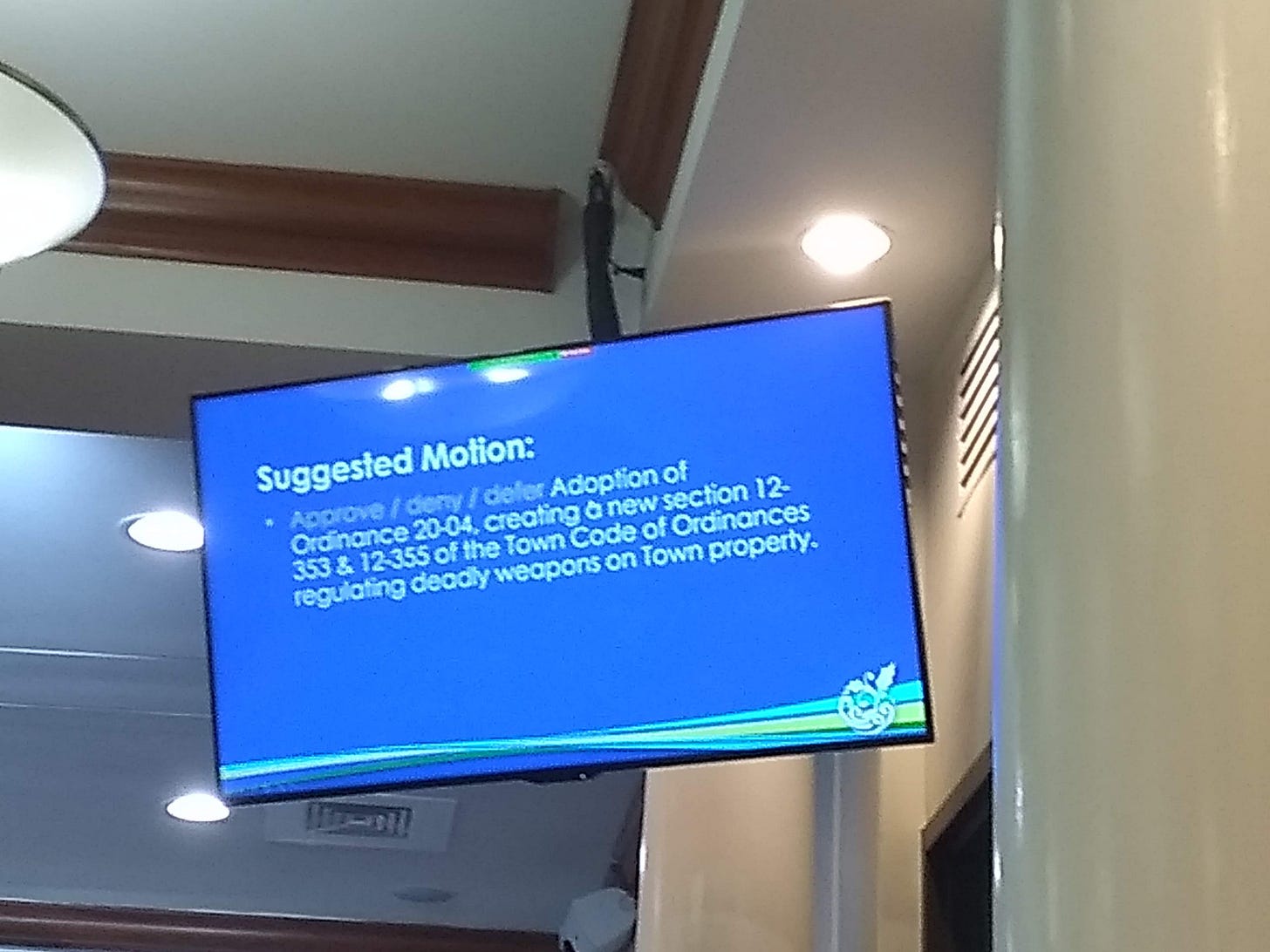Activists continue Wake NDO pressure campaign, but what does the NDO say?
As Holly Springs town population has boomed, so has left-leaning activism
At a Jan. 17 meeting, LGBTQ activists re-upped their ongoing pressure campaign to force the Holly Springs Town Council to adopt Wake County’s non-discrimination ordinance (NDO).
At least two media outlets, one of which was ABC11, were present at the meeting, which is atypical for Holly Springs government meetings. It’s likely those outlets were there at the invitation of the activists involved.
The agenda for the Jan. 17 meeting included regular town administration items and the approval of a replacement for outgoing council member Kristi Bennett. The NDO was not on the agenda.
Several individuals who took the podium during the public comments portion of the meeting in favor of the NDO listed their pronouns and announced themselves to be “nonbinary.”
One of the speakers relied on claims made on social media casting Holly Springs as a racist, discriminatory place to live as a basis for adopting the NDO. That speaker said there was no real data being collected by the town, so social media posts were all they had to go on.
Another speaker was Donna Friend, an LGBTQ activist and Holly Springs resident often cited by media outlets on the Wake NDO.
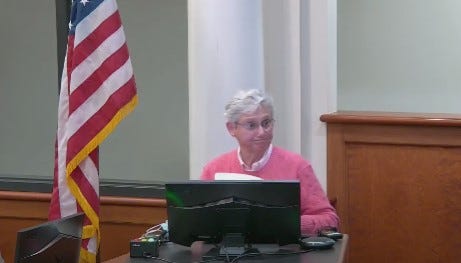
It’s worth noting that just as many citizens came out to oppose the adoption of the NDO as there were to adopt it.
Those attending in favor of the NDO pulled a bit of a stunt when a speaker in favor of the motion asked supporters in the gallery to stand and wave signs with messages asking the council to sign the NDO.
Last year, Friend also launched a Change.org petition for Holly Springs to “support” the Wake County NDO. The petition has only garnered just over 550 signatures.
Friend’s petition cites Wake’s NDO for “businesses of 100 employees or less.”
That citation is correct; the Wake County NDO, in fact, targets small businesses.
Using Holly Springs as an example, hundreds of small businesses that operate in the town would be impacted.
Wake County passed the NDO in October of 2021 and so far the towns of Apex, Cary, Garner, Knightdale, Morrisville, and Wendell, as well as the City of Raleigh have all signed onto it.
At last check, it looks like Holly Springs, Fuquay-Varina, Rolesville, Wake Forest, and Zebulon are not interested in it. And with good reason.
The Wake NDO is duplicative with state and federal law in many aspects regarding discrimination and employment, making the document itself symbolic at best. At worst, it’s a tool creating special "protected classes" that could sow division, target businesses that are seen by activists as not aligning with LGBTQ ideological views, and which could see abuse in the legal system by such activists.
Media coverage about what the NDO actually says has been scarce and often omits a link to the actual NDO document.
So what does the NDO actually say? Read the Wake NDO for yourself.
Bear in mind, the NDO defines discrimination as “any difference in treatment based on a Protected Class as defined herein.”
Just like the Charlotte Ordinance which prompted House Bill 2, the Wake NDO appears to apply to both public and private employment and/or venues except for houses of worship.
Here’s the opening list of definitions and “protected classes” listed in the NDO:
Sections to pay attention to in the NDO includes one titled “public accommodations,” which in part states, “It shall be unlawful for any owner, proprietor, employer, employee, agent, keeper, or manager in a place of public accommodation to deny any person the full and equal enjoyment of the accommodations, advantages, facilities, or privileges thereof because of that person’s inclusion within one or more Protected Class.”
Other sections of note include:
§ 34.03 EMPLOYMENT AND CONTRACTING
A. It shall be unlawful for any employer, because of the Protected Class of any person, to fail or refuse to hire, discharge, or otherwise discriminate against that person with respect to tenure, promotion, transfer, compensation, terms, conditions or privileges of employment, or any other matter directly or indirectly related to employment.§ 34.04. INCLUSIVE INTERPRETATION OF SEX AND RACE DISCRIMINATION
A. Wake County interprets all legal prohibitions on sex discrimination to include discrimination on the basis of sexual orientation, gender identity, and gender expression.
B. Wake County interprets all legal prohibitions on race discrimination to include discrimination on the basis of protected hairstyles.§ 34.06. APPLICABILITY; COMPLIANCE WITH LAWS
A. Pursuant to N.C.G.S. 153A-122, this ordinance shall apply within the jurisdictional limits of Wake County and is not applicable within the territorial limits of a city or town, unless a municipal governing board opts in, provided there is agreement to enforcement procedures through an interlocal agreement
More To The Story
For full disclosure, I am a resident of Holly Springs and, as a resident of the area, I attended the Jan. 17 meeting.
Our family has lived in this southern Wake County town for 14 years. At the time we moved into our home in Holly Springs, there were less than 17,000 citizens. As of now, there are over 43,000 and counting. And as the town’s population has boomed, so has the level of left-leaning political/ideological activism.
The NDO is just the most recent iteration of such activism in Holly Springs.
In 2020, in line with the George Floyd Riots, a Black Lives Matter protest stopped traffic in our town and vehicle access to the main road in front of the town hall was shut down.
Prior to the protesters marching up Main Street and through downtown, Holly Springs Police laid out the route they could take. From the video, it looks like Dick Sears, the late mayor of the town, was there too. Watch the video of that meeting on Facebook.
Out in front, standing on a town hall pillar leading the crowd was Aaron Wolff - a sitting town council member. The image below shows Wolff giving a speech of some kind to the protesters. The image, apparently taken by “Drew Hickland,” circulated on Facebook on June 22, 2022.
One progressive activist group that popped up at the same time is known as “Impact Holly Springs.” The group published multiple photos of protesters marching through the town.
Impact Holly Springs also promoted merchandise during the time riots were sweeping the country for the now scandal-ridden BLM.
Impact Holly Springs has a public Facebook page, but also a private one just for “supporters.” The group is run by a woman who only moved to the town that year named Chanel Wilkins. Sources inside Holly Springs government say she has stated she intends to run for town council in the near future.
The “supporters only” page has apparently been continually promoting the NDO pressure campaign, according to some of that page’s participants who tell me they are increasingly uncomfortable with the progressive-dominating tilt in the group.
The June 22nd protest wasn’t the first. A handful of BLM protesters tried to shut down one of the main downtown intersections on June 3; in hindsight, that protest was likely a test run.
Later in the summer of 2020, Wolff and now-former council member Christine Kelly pushed a measure to ban open and concealed carry of firearms on town property. The language chosen for the motion by Wolff and Kelly was “regulation” of “deadly weapons.”
The open carry ban made it through despite vocal, large opposition to the infringement of the Second Amendment rights of the citizens.
As the saying goes, “all politics is local” and given what’s been going on in this once peaceful and harmonious little town, that phrase has never been more true.


